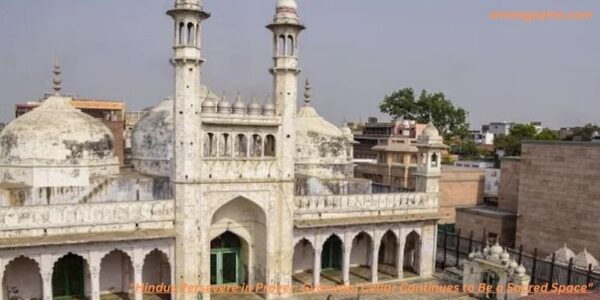On Monday, the Allahabad High Court rejected a petition challenging a decision that allowed Hindus to conduct puja in the southern cellar of the Gyanvapi complex in Varanasi.
The area known as ‘Vyas Ji Ka Tehkhana’ permits Hindu worship within the Gyanvapi mosque complex. The plea against this Varanasi court order was filed by the Anjuman Intezamia Masjid Committee and was heard by Justice Rohit Ranjan Aggarwal as a single bench.
Also Read: well health tips in hindi wellhealth
The Allahabad High Court dismissed the Varanasi District Court’s orders from January 17 and January 31, which were contested by the Anjuman Intezamia. According to lawyer Vishnu Shankar Jain, representing the Hindu side, the key point is that the ongoing puja in the Gyanvapi complex’s “Vyas Ji Ka Tehkhana” will continue.
The High Court acknowledged that pujas and religious rites were performed there in the past, but they were discontinued in 1993 without formal documentation or decree. The court upheld today’s ruling, stating that Hindu devotees can continue their prayers in the southern cellar. Advocate Subhash Nandan Chaturvedi confirmed the High Court’s dismissal of Anjuman Intezamia’s objection.
The Varanasi court had allowed Hindu devotees to offer prayers on January 31 in the Gyanvapi base’s southern cellar and instructed the Shri Kashi Vishwanath Temple Trust to designate a priest for the puja. The district administration was also directed to arrange necessary logistics for the devotees. In response, the mosque committee challenged the Varanasi court order in the Allahabad High Court.
On February 15, after hearing arguments, the High Court postponed its decision. Earlier, four female plaintiffs approached the Supreme Court, seeking a survey and excavation of the sealed portion of the Gyanvapi mosque. The Varanasi court issued its order based on an Archaeology Survey of India report, which the Hindu side claimed indicated the existence of a significant Hindu temple before the mosque’s construction.
Also Read: wellhealthorganic vitamin b12
The women argued that a thorough excavation of the sealed area, along with scientific techniques and the removal of modern structures, would reveal the true nature of the “Shivling.” Some Hindu activists dispute the existence of the temple, while the Muslim side contends that it was destroyed in the seventeenth century on the orders of Emperor Aurangzeb.
